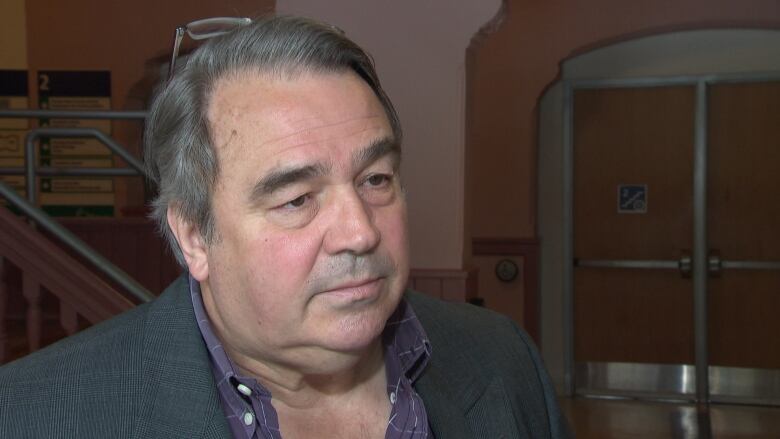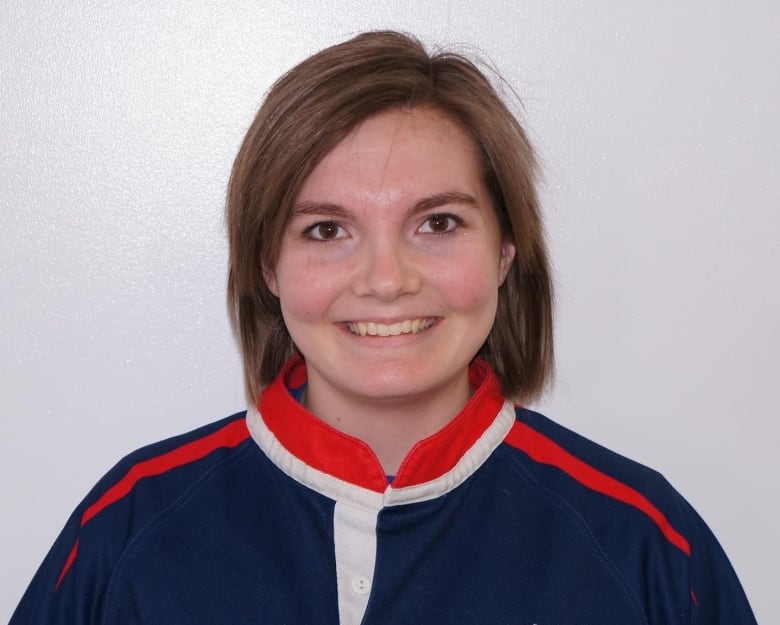Rowan Stringer's rugby death inquest hears injuries should be tracked
Stringer, 17, died from Second Impact Syndrome after 3 concurrent concussions in less than a week
There is"no solid process in place"to ensure athletesfollowup onsuspected or real concussions, according to the rugbyreferee who was officiatingwhenRowan Stringer suffered afatal head injury.
Jim Carr continued his testimony on Friday at the coroner's inquest into Stringer's death.
Carr said he would like to see high school level referees flag concussions on score sheets at the end of each game, which would then allow school boards to create databases to track injured players.
"Concussions are nebulous," he said."You can't see them andplayers don't own up to them."
- LIVEBLOG: Follow latesttestimony from coroner'sinquest
- Rowan Stringer's brain wasn't healed from previous concussions, surgeon says
- Rowan Stringer failed road test badly days before death
- Rowan Stringer ignored concussion symptomsin days before death
He also said high school referees often do not have muchexperience andshould be "stopping play andawarding penalties more than they do."
Carr, who has officiated in rugby for more than 20 years,said he did not see the benefit of introducing hardened equipment into the game, such assoft-padded helmet.

Carr remembered multiple players going to the ground after a hard collision, before looking over and seeing Stringer, 17, lying down unconscious.
Witnesses have said she stayed awake for a few moments after sitting up from the hit, and then fell unconscious. She was taken to hospital where doctors tried unsuccessfully to relieve the pressure in her head.
Stringer, who had suffered threeconcussions in less than a week,died four days later.
She would die from Second Impact Syndrome, where a pre-existing injuryfollowed by another head blow can cause death.
Brain didn't heal or rest after earlier concussions
Dr.Michael Vassilyadi, a neurosurgeon at the Children's Hospital of Eastern Ontario, testified Thursday that Stringer was the first and only case of Second Impact Syndrome he has ever treated.
Vassilyadi said Stringer's brain had not healed or rested after two previous concussions causing a "rare and quite severe" head injury.

Kathleen Stringer said she hopes this inquest pushes schools to instill mandatory concussion education in Grade 9 to help students learn more about the dangers of head injuries.
Rowan Stringer's friend, MichelleHebert, testified on the inquest's first day that she received texts from Stringer brushing off any head injury concerns before her final game.
Theyincludedmessages like, "nothing would stop me unless I'm dead" and "what's some brain damagegonnahurt."
The inquest into Stringer's death, which resumes on Monday, is examining the circumstances surrounding her death, including areas of head injury recognition in high school field sports. The jury may make recommendations aimed at preventing similar deaths.
- On mobile? Tap here to follow the inquest live blog.













_(720p).jpg)


 OFFICIAL HD MUSIC VIDEO.jpg)
.jpg)



























































































